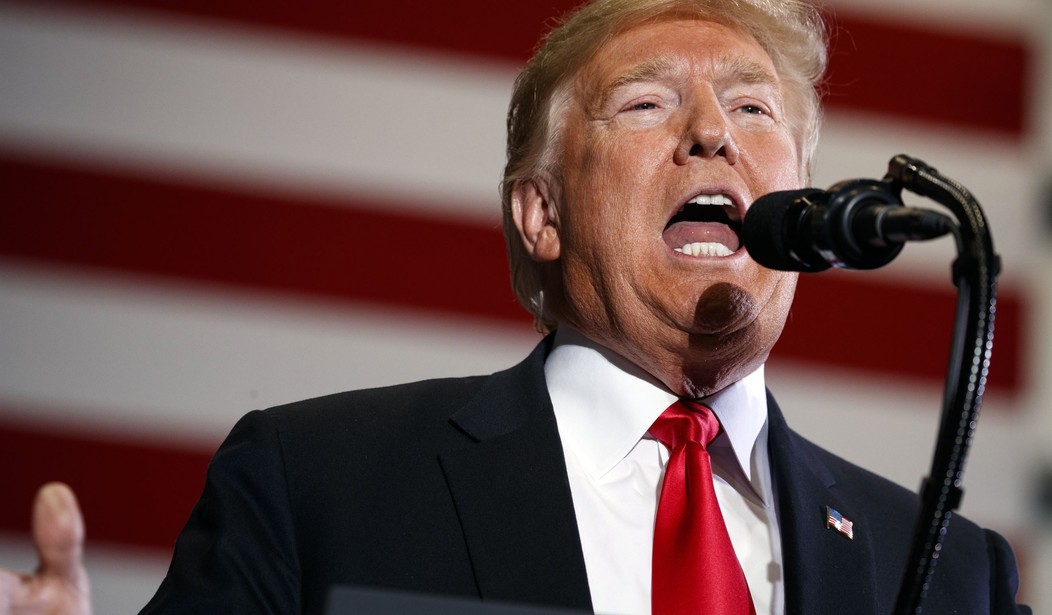Had John C. Fremont not run as a Republican in 1856, there would probably would have been no Lincoln in 1860. The Republican Party formed in the 1850s with the collapse of the Whig Party. The central unifying issue Republicans shared was abolition of slavery. It unified people across political parties, bringing them together into something new.
In the early 1990s, fueled by a single billionaire's calls for reform, the Reform Party sprang up under H. Ross Perot. He won 18.9 percent of the popular vote. The Reform Party, unlike the Republicans in the 1800s, was one man's party, and it went nowhere. For the first time in more than a century, the country may finally be on the verge of doing what Perot could not do. The time could be right for a viable third party.
If you pay attention in Florida, Senator-elect Rick Scott got 45 percent of the Hispanic vote. Brian Kemp, the Governor-elect in Georgia, got 38 percent of the Hispanic vote. In fact, Republicans did far better with the Hispanic vote than the media would have anyone believe is possible. Also, consider black men. According to the adjusted exit polling, about 18 percent of black men voted Republican in Texas, up from 14 percent two years ago. In Wisconsin, the number skyrocketed to 21 percent from 8 percent two years ago.
The trend away from the Democrats by minority voters is almost entirely because of cultural issues. The Democrats' growing hostility to faith, conservative social values, etc. is a real Achilles heel for the party with minority voters -- particularly Hispanic voters.
Concurrent to that, the white suburbs fled the GOP. High-income white voters in the suburbs who have been reliably Republican have had enough of President Donald Trump. They want a new political home. Combine white suburban voters with black and Hispanic voters who will not go to the GOP because of Trump, but no longer feel at home in the Democratic Party, and there appears to be real room for a third party in the country now -- one that is viable, unlike the Libertarian or Green parties.
Recommended
I suspect this all runs through the GOP, however. Put up someone in the 2020 Republican presidential primary against Trump running on these sorts of themes and the person probably cannot win -- but probably could start a third party movement as a sizable portion, though not a majority, of Republicans tired of President Trump leave their political home and make it an acceptable place for black and Hispanic voters.
The GOP would become a mostly white rural party. The Democrats would become a mostly wealthy, urban white party. This new party, call it the Federalists, would be a coalition of former Republicans and minority Democrats with a healthy addition of evangelicals, all of whom think the two parties have failed the country.
Such a move would probably not be successful in 2020. It would probably lead to Trump's defeat, thereby making remaining Republicans bitter toward the effort. But the data from the midterms show pretty clearly that the suburban Republicans and the socially conservative minority Democrats are all ready for a new political home. It would not be an immediate successful enterprise, but could potentially sustain itself, so long as it makes the party one of ideas and not one man's enterprise like the Reform Party of Ross Perot.
For those of us who are fiscally conservative, we'd also have to get used to the idea that this would not be a small government party, per se. But it could no doubt position itself as a fiscally responsible, free-market party, unlike either of the existing parties.
The GOP belongs to Donald Trump for the time being, and there is no reason for a primary challenge against him. But the midterm data all very compellingly suggest that if someone wanted to try a go at resetting the American political coalitions, now would be the time.

























Join the conversation as a VIP Member